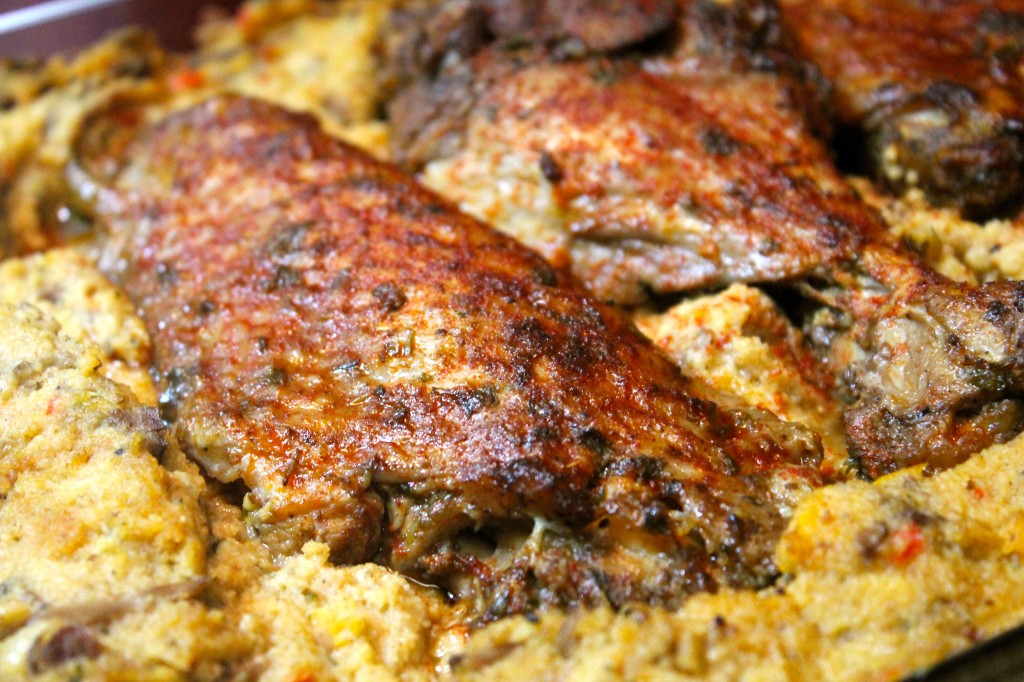Turkey wings are a beloved snack appetizer, or meal component for many. Their juicy flavorful meat covered in crispy, seasoned skin is hard to resist. But are these tasty turkey pieces actually good for you? Let’s take a closer look at the nutrition profile of turkey wings.
The Nutrients in Turkey Wings
Turkey wings are considered a dark meat cut of the bird. Here is the nutrition information for a typical 4oz serving of roasted turkey wings with the skin on according to the USDA:
- Calories: 313
- Fat: 23g
- Saturated fat: 7g
- Cholesterol: 170mg
- Sodium: 128mg
- Carbohydrates: 0g
- Fiber: 0g
- Sugar: 0g
- Protein: 27g
Turkey wings also contain minerals like iron, potassium, phosphorus, and zinc As well as B vitamins like niacin, vitamin B6, and pantothenic acid
So what does this nutrition profile mean for your health?
Benefits of Turkey Wings
There are some good things about turkey wings from a nutritional standpoint:
-
High in protein – The 27g of protein per serving makes turkey wings an excellent source of this important nutrient. Protein provides amino acids for building and repairing muscle.
-
Low in carbs – With no carbs or sugar, turkey wings can fit into low-carb eating plans like keto. This can help regulate blood sugar.
-
Provides iron – The iron in turkey wings helps prevent anemia and aids in oxygen transportation in the blood.
-
Contains vitamins/minerals – B vitamins, zinc, and selenium found in turkey wings support immune function and overall health.
So turkey wings can be a smart choice thanks to their stellar protein content and micronutrients. But there are some potential downsides to keep in mind too.
Drawbacks of Turkey Wings
Here are a few of the negatives when it comes to the nutrition profile of turkey wings:
-
High in fat/calories – The 23g of fat accounts for over a third of the total calories. The skin contributes significant saturated fat and calories.
-
High in cholesterol – The 170mg of cholesterol is over half the recommended 300mg daily limit for healthy adults. Too much can increase heart disease risk.
-
May be high in sodium – Turkey wings are often seasoned with lots of salt or served with dipping sauces that hike up the sodium level. Excess sodium can cause high blood pressure.
So while turkey wings offer protein and other nutrients, their fat, cholesterol, and sodium content should be monitored.
Tips for Healthier Turkey Wings
Luckily there are easy ways to lighten up turkey wings:
-
Remove the skin before eating to slash fat, cholesterol, and calories significantly
-
Opt for baking, grilling, or air frying instead of deep frying
-
Use fresh herbs, spices, citrus, vinegar, and other flavors rather than salt for seasoning
-
Enjoy turkey wings in moderation as a side dish rather than an entire meal
-
Pair turkey wings with healthy sides like veggies, salad, and whole grains
The Verdict on Turkey Wings
At the end of the day, are turkey wings healthy? In moderation and prepared wisely, turkey wings can absolutely be part of a nutritious diet. Their stellar protein content, vitamins, and minerals make them more than just an indulgence. Just be mindful of portions and accompany turkey wings with plenty of other healthy fare. By paying attention to how you cook and consume turkey wings, you can enjoy their signature flavor and still stay on track with your nutrition goals.

Detailed Nutrient Information Vitamin C
- 4 oz (113 g)
- 1 wing (346 g)
- Excellent source of Niacin
- Excellent source of Vitamin B6
- Excellent source of Vitamin B12
- Excellent source of Selenium
- Good source of Pantothenic Acid
- Good source of Phosphorus
‡ – As defined by Health Canada guidelines.
Nutrition Facts Source: USDA
Summary:
- Very High Protein
- Low Fat
- Low Carbs
Foods with similar macro profiles:
Profile of Protein in Item Recommended Protein Powder Shop for high-quality whey protein supplements at Transparent Labs. Shop Whey Protein Purchases made through this affiliate link support Prospre. Essential Amino Acids
Essential amino acids are critical for building protein. For more information, see the Wikipedia page about them.
Protein Quality Score: 100% †
Limiting Amino Acid: Valine
- Some foods that are a good source of Valine include meats, dairy products, soy products, beans and legumes.
† – Not adjusted for digestibility. For more information, see the protein digestibility tables.
100g of Turkey Wing contains 23.7g of protein, which is about the same as 3.9 eggs, 0.9 chicken breasts, or 1.7 cups (460g) of black beans.
Juicy Baked Turkey Wings | You’ll Never Bake Turkey Any Other Way
FAQ
Are turkey wings healthier than chicken?
Can you eat turkey wings on a diet?
Are turkey wings bad for cholesterol?
Is turkey wings good?
